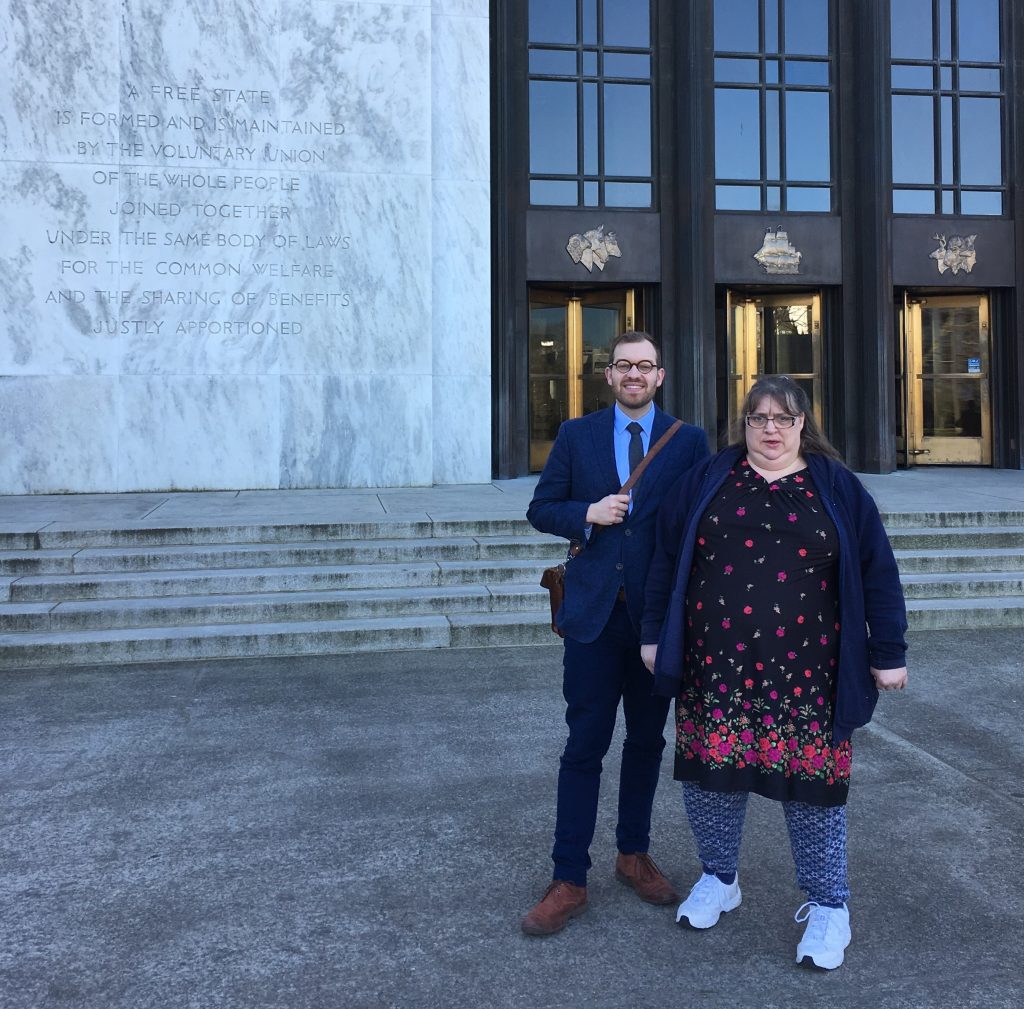In 2015, Cheryl Coon, while working at TCNF, successfully advocated for a state law that required medical facilities to provide one free set of medical records to people applying for Social Security disability benefits. The state legislature passed that law, which is known as SB 710. But in 2017, the Oregon Medical Association—a group that lobbies for the health care industry—proposed a bill to dramatically limit access under SB 710. Basically, the OMA lobbied to limit a disabled person’s free records to the period from the date of Social Security’s “initial denial” through the applicant’s hearing. This means that access to free copies of medical records would only exist for the time period between getting denied for Social Security benefits and getting their case reviewed by a judge.
If the OMA had been successful, some people with disabilities would have been denied the protection of the law and would not have been able to get free copies of the medical records from the time when they first grew sick or injured. Most applicants don’t file for Social Security disability benefits immediately after the onset of their condition(s)—most people hope to be able to return to work, and only apply for benefits once it becomes clear they will not be able to go back to their old jobs. Naturally, such a restriction on the time frame of free records could leave a lot of important information out of an applicant’s case, and our firm fought adamantly to prevent this change.
Our own Scott Sell and Melissa Haggerty worked together to organize a response on behalf of Oregonians living with disabilities and the Oregon Trial Lawyers Association. Scott testified in front of the State Senate and House committees, as well as providing written testimony. As Scott’s testimony said, “The Senate Committee on Human Services received testimony from a wide swath of people who were helped by this statute. There is testimony in the bill file from a former interim Commissioner of Multnomah County discussing the difference that this statute made in her life. There is also testimony from a former laundry worker with an intellectual disability about the difference that this statute made in her life. Indeed, this bill has helped hundreds, if not thousands, of disabled Oregonians.”
We helped Tina Martin, the former laundry worker Scott mentioned, travel to Salem to testify in front of the House herself. She testified that without the law allowing her to get free copies of her medical records, she would not have been approved for Social Security disability coverage because otherwise the cost of records would have been beyond her means.
Melissa’s testimony argued, in part: “Frequently, it is not until a person is at the hearing stage, has hired an attorney, and that attorney has carefully reviewed the case file that it becomes clear that the file is missing key medical records dating between a person’s ‘alleged onset date’ and the date of their initial denial for benefits. These records can make the difference between a person being approved, with the resulting self-sufficiency based on federal benefits, and a denial, which results in ongoing need for state- and county-level services.”
All that hard work paid off. Melissa worked closely with Representative Rob Nosse, of SE and NE Portland, who went on to carry the bill in the House and who was key to our victory. Today, under the protections provided by SB 275 and ORS 192.576, applicants who are appealing a denial of Social Security benefits are entitled to receive one free copy of their medical records from their onset date through the date of their hearing.

